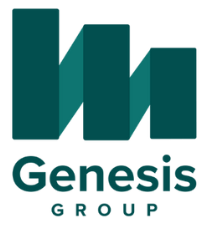Reading Time: 14 minutes
Navigating Mortgage as a Self-Employed Individual in Canada:

Welcome to the complex yet navigable world of mortgages for self-employed individuals in Canada. Being your own boss brings numerous advantages, but when it comes to securing a mortgage, the path is often less straightforward than for those with traditional employment. This blog aims to demystify the process, offering insights and solutions tailored to the unique needs of self-employed professionals seeking to navigate the Canadian mortgage landscape.
Challenges for Self-Employed in Securing Mortgages
For self-employed individuals, one of the primary hurdles in securing a mortgage is the traditional income proof requirement. Unlike salaried employees, self-employed professionals often experience fluctuating incomes and may lack the standard documentation such as T4 slips or employer letters that lenders typically require.
Income Variability and Verification
- Income Fluctuations: Self-employed incomes can vary month-to-month and year-to-year, making it challenging to present a consistent income figure to lenders.
- Documentation Challenges: Traditional lenders usually seek stable, predictable income, often verified through standard employment documentation, which self-employed individuals may not have.
Overview of the Blog’s Aim
This blog is designed to bridge the gap between the unique financing needs of self-employed Canadians and the mortgage options available to them. It aims to provide:
Comprehensive Mortgage Solutions
- Alternative Documentation Options: Exploring various ways self-employed individuals can prove their income and creditworthiness beyond conventional means.
- Diverse Lending Sources: Introducing different types of lenders and mortgage products that cater to the self-employed market.
- Practical Advice and Tips: Offering actionable advice to prepare for the mortgage application process and increase the chances of approval.

Navigating the mortgage process as a self-employed individual in Canada can be challenging, but with the right information and preparation, it is far from impossible. This blog is your guide to understanding, preparing for, and successfully securing a mortgage that fits your unique employment situation.
Understanding Self-Employed Mortgage Basics

In the Canadian housing market, navigating the path to homeownership as a self-employed individual comes with unique challenges and considerations, particularly when it comes to securing a mortgage. Understanding the basics of what a self-employed mortgage entails and how it differs from standard mortgages is crucial for anyone in this category looking to invest in property.
What is a Self-Employed Mortgage?
A self-employed mortgage in Canada is a type of loan specifically designed for individuals who run their own business or work as freelancers or contractors. This kind of mortgage caters to those who may not have a steady paycheck but still earn a sustainable income.
Tailored for Non-Traditional Income Earners
- Flexibility in Income Verification: These mortgages accommodate the varied nature of self-employed income, offering more flexible criteria for proving earnings and financial stability.
- Customized Assessment: Lenders will often take a more holistic approach to assess a self-employed applicant’s creditworthiness, looking at factors beyond just annual income.
Key Differences from Standard Mortgages
Self-employed mortgages differ from traditional mortgages in several key aspects, reflecting the unique financial situations of those who don’t have a typical 9-to-5 job.
Income Verification Process
- Standard Mortgages: Typically require proof of steady income through T4 slips or employer letters.
- Self-Employed Mortgages: May accept alternative documentation, such as tax returns, bank statements, or proof of business for a certain number of years.
Assessment Criteria
- Debt-to-Income Ratio: This ratio may be scrutinized differently for self-employed individuals, considering the fluctuating nature of their income.
- Credit Score Requirements: Self-employed applicants might need a higher credit score compared to standard mortgage applicants to compensate for the perceived higher risk.
Interest Rates and Down Payment
- Potential for Higher Interest Rates: Due to the perceived higher risk, some lenders may charge slightly higher interest rates for self-employed mortgages.
- Down Payment: The requirement might be higher to offset the risk associated with variable income streams.

Understanding these fundamental differences and the nature of self-employed mortgages is essential for any self-employed individual in Canada looking to navigate the real estate market. With this knowledge, you can better prepare for the mortgage application process and align your expectations with the reality of the lending landscape.
Qualifying for a Mortgage as a Self-Employed Individual

For self-employed individuals in Canada, qualifying for a mortgage presents unique challenges, primarily around the issue of income verification. Traditional W-2 forms are not applicable in this scenario, prompting the need for alternative documentation to prove income stability and reliability to lenders.
Income Verification Challenges
The nature of self-employment often means that income can be irregular or vary from year to year, which poses a challenge when applying for a mortgage. Lenders traditionally look for stable and predictable income, which is not always characteristic of self-employed earnings.
Variability and Fluctuations
- Irregular Income Patterns: Earnings may fluctuate due to the nature of contract work or business cycles, making it difficult to present a consistent income figure.
- Seasonality: For businesses that are seasonal, income can vary significantly at different times of the year, requiring more comprehensive documentation to provide a full picture of annual earnings.
Alternative Documentation
Given these challenges, self-employed individuals must rely on alternative forms of documentation to verify their income. Lenders in Canada have adapted to this by accepting various forms of evidence.
Tax Returns
- Primary Document: Most lenders will ask for at least two years of personal and, if applicable, corporate tax returns to understand your annual earnings.
- Net Income Considerations: It’s essential to balance minimizing taxable income for tax purposes and maximizing it for mortgage qualification.
Bank Statements
- Personal and Business Accounts: Provide bank statements for both personal and business accounts to showcase the flow of income and expenses.
- Regular Deposits: Evidence of regular deposits can help demonstrate a consistent income stream.
Profit and Loss Statements
- Business Health Indicator: A well-prepared profit and loss statement can give lenders insight into the health and viability of your business.
- Professional Preparation: Having these documents prepared by a professional accountant can add credibility to your application.
Additional Documentation
- Contracts and Agreements: Current and future contracts can serve as proof of expected income.
- Credit History: A strong personal and business credit history can significantly bolster your application.

Navigating the mortgage qualification process as a self-employed individual in Canada involves a clear understanding of the challenges and a strategic approach to documentation. By presenting a comprehensive financial picture through alternative documentation, self-employed professionals can effectively demonstrate their creditworthiness to lenders.
Mortgage Options Available for Self-Employed in Canada

Navigating the mortgage landscape in Canada as a self-employed individual can be daunting, but understanding the various options available can significantly ease the process. From traditional bank mortgages to non-traditional lending solutions and government-backed programs, self-employed Canadians have several avenues to explore when seeking a mortgage.
Traditional Bank Mortgages
Banks’ Approach to Self-Employed Applicants
- Income Scrutiny: Banks typically conduct a thorough review of income, requiring extensive documentation and a solid credit history.
- Stability and Continuity: Lenders look for evidence of a stable and ongoing business. Consistency in income over several years can play a crucial role in the assessment.
Benefits
- Competitive Interest Rates: Traditional banks generally offer more competitive interest rates compared to other lending sources.
- Reputation and Reliability: Established banks provide a sense of security and standardized processes.
Non-Traditional Lenders and Their Offers
Alternative Lending Options
- Flexible Criteria: Non-traditional lenders, such as credit unions and private lenders, often have more flexible criteria and may be more accommodating of variable incomes.
- Creative Solutions: They can offer innovative mortgage products tailored to unique income situations of self-employed individuals.
Considerations
- Higher Interest Rates: These lenders may charge higher rates due to the perceived increased risk.
- Customized Service: They often provide more personalized service, which can be beneficial in navigating unique financial scenarios.
Government-Backed Programs and Incentives
Support for Self-Employed Canadians
- Home Buyer’s Plan (HBP): Allows individuals to withdraw from their RRSPs to buy or build a home.
- CMHC Programs: The Canada Mortgage and Housing Corporation (CMHC) may offer programs that assist self-employed individuals in obtaining a mortgage with a lower down payment.
Advantages
- Accessibility: These programs are designed to make homeownership more accessible, particularly for those who might struggle with traditional mortgage requirements.
- Lower Down Payment Requirements: Some government programs allow for lower down payment thresholds, easing the initial financial burden.

For self-employed individuals in Canada, the journey to securing a mortgage involves exploring various options to find the one that best suits their financial situation. Whether through a traditional bank with its stability and competitive rates, the flexibility of non-traditional lenders, or leveraging government-backed programs for additional support, understanding these options is crucial in making an informed decision.
Navigating Interest Rates and Fees

For self-employed individuals in Canada looking to secure a mortgage, understanding how interest rates and fees work is crucial. Being self-employed can influence these aspects of a mortgage, often leading to different rates and fees compared to traditionally employed borrowers. This section will guide you through the intricacies of these financial elements and offer strategies to secure more favorable terms.
Comparing Rates: The Impact of Self-Employment
Influence on Interest Rates
- Perceived Risk: Lenders often perceive self-employed individuals as higher-risk borrowers due to fluctuating incomes and less predictable financial stability. This perception can lead to higher interest rates.
- Rate Variability: Depending on the lender and the strength of your financial documentation, rates can vary significantly. It’s crucial to shop around and compare offers.
Understanding Fees
- Application Fees: Some lenders may charge higher application fees for self-employed mortgages due to the additional work involved in assessing non-traditional income.
- Additional Costs: Be aware of other potential costs, such as appraisal fees or legal fees, which can add up.
Strategies to Secure Better Rates
Securing favorable mortgage rates and terms as a self-employed individual involves several proactive steps:
Strengthening Credit Scores
- Timely Payments: Ensure all bills and existing loans are paid on time. A strong payment history can significantly improve your credit score.
- Debt Management: Work on reducing your overall debt levels. A lower debt-to-income ratio is appealing to lenders and can lead to better rates.
Negotiation and Documentation
- Negotiating Skills: Don’t be afraid to negotiate with lenders. If you have a strong credit history and solid financial documentation, use these as leverage in your negotiations.
- Comprehensive Documentation: Provide thorough and organized financial records. Demonstrating a stable and profitable business can help in securing more favorable terms.
Exploring Various Lenders
- Shop Around: Compare rates from different lenders, including banks, credit unions, and alternative lenders. Each lender may offer different rates and terms.
- Broker Assistance: Consider working with a mortgage broker who understands the needs of self-employed individuals. They can help you find the best rates and terms suited to your situation.

Navigating interest rates and fees as a self-employed individual in Canada can be complex, but with the right approach and preparation, it’s possible to find a mortgage solution that works for you. By understanding how these rates are determined and taking steps to present yourself as a low-risk borrower, you can secure more favorable mortgage terms.
Preparing for the Mortgage Application Process

When you’re self-employed and looking to buy a property in Canada, preparing for the mortgage application process is crucial. A strong application can greatly enhance your chances of approval. However, there are common pitfalls that can hinder your application. Understanding both what to do and what to avoid can be the key to a successful mortgage journey.
Building a Strong Application
Steps to Enhance Approval Chances
- Organize Financial Documents: Prepare and organize all necessary financial documents. This includes personal and business tax returns, profit and loss statements, bank statements, and any other relevant financial records.
- Showcase Income Stability: Try to demonstrate income stability and reliability. If possible, show consistent or increasing income over the past two to three years.
- Clear Debts and Improve Credit Score: Pay off as much existing debt as possible and work towards improving your credit score. A higher credit score is often equated with lower risk by lenders.
- Maintain a Healthy Savings Account: A robust savings account can serve as evidence of financial stability, providing lenders with confidence in your ability to manage finances effectively.
- Prepare a Strong Business Case: Especially if your business is relatively new, prepare to make a strong case for its viability and potential for growth.
Additional Considerations
- Large Down Payment: Saving for a larger down payment can be beneficial, as it lowers the loan-to-value ratio, thereby reducing the lender’s risk.
- Professional Help: Consider hiring an accountant to prepare financial statements and a mortgage broker to assist with the application process.
Common Pitfalls to Avoid
Understanding and avoiding common mistakes can greatly increase the likelihood of your mortgage application being approved.
- Under-Reporting Income: While minimizing taxable income can save money on taxes, it can also reduce your reported income, affecting your mortgage application.
- Frequent Changes in Business Structure: Constantly changing your business structure (from sole proprietorship to corporation, for instance) can be seen as a red flag by lenders.
- Not Separating Personal and Business Expenses: Lenders prefer to see clear distinctions between personal and business finances.
- Applying for Credit Before Mortgage Approval: Taking out loans or applying for new credit cards just before or during the mortgage application process can negatively impact your credit score.
- Inadequate Documentation: Failing to provide all the required documentation in a clear and organized manner can delay or derail the approval process.

By carefully preparing for the mortgage application and avoiding common pitfalls, self-employed individuals can significantly enhance their chances of securing a mortgage. Remember, the key is to present yourself as a low-risk, financially stable applicant, capable of maintaining mortgage payments.
Success Stories: Self-Employed Canadians Who Navigated the Mortgage Process

In the world of mortgages, self-employed individuals often face unique challenges. However, with determination and the right support, many have successfully navigated these waters. Let’s explore some compelling real-life success stories, particularly highlighting how The Genesis Group played a pivotal role in securing their loans.
Success Story 1: The Freelance Graphic Designer
Background
- Name: Emily Chen
- Profession: Freelance Graphic Designer
- Challenge: Inconsistent income and a lack of traditional employment records.
The Genesis Group’s Role
- The Genesis Group worked closely with Emily, helping her organize her financial documents and showcasing her income stability over the past three years.
- They advised her on improving her credit score and assisted in crafting a compelling business case.
Outcome
- Emily secured a competitive mortgage rate for her dream condo in downtown Toronto.
- Key Takeaway: Maintaining organized financial records and a solid credit score can significantly enhance mortgage approval chances for freelancers.
Success Story 2: The Independent Consultant
Background
- Name: Raj Patel
- Profession: Independent Business Consultant
- Challenge: Newly self-employed with less than two years of business history.
The Genesis Group’s Intervention
- The Genesis Group highlighted the strength of Raj’s previous employment and his burgeoning consulting business’s early successes.
- They helped him explore alternative lenders who were more flexible with their requirements.
Outcome
- Raj received approval for a mortgage that enabled him to buy a family home in Pickering.
- Key Takeaway: For newly self-employed individuals, highlighting past employment success and seeking out alternative lenders can be key strategies.
Success Story 3: The Small Business Owner
Background
- Name: Laura and David Smith
- Profession: Owners of a small artisan coffee shop
- Challenge: Needed a mortgage to buy a property that could serve as both a residence and a business location.
How The Genesis Group Helped
- The Genesis Group helped them leverage their business assets and secure a mortgage under more favorable terms than traditional loans.
- They provided guidance on how to present their business financials effectively.
Outcome
- They purchased a beautiful property in Cambridge, ON, which now hosts their home and thriving coffee shop.
- Key Takeaway: Leveraging business assets and presenting a strong business financial case can open doors to favorable mortgage terms.
Image Prompt: A collage showing Emily, Raj, and Laura & David, each next to a visual symbol of their success – a graphic design portfolio, a consultant’s office, and a coffee shop.
These stories are more than just success narratives; they are a roadmap for other self-employed Canadians striving to realize their property dreams. Each story underscores the importance of strategic financial planning, the right lender relationship, and professional guidance – all areas where The Genesis Group excels.
Empowering Self-Employed Canadians in Their Home Buying Journey

As we wrap up this comprehensive guide, it’s clear that while the journey to homeownership for self-employed Canadians comes with its unique set of challenges, it is by no means an insurmountable path. With the right approach, information, and guidance, securing a mortgage is well within reach. Here’s a quick recap of the essential insights we’ve covered:
Recap of Key Insights
- Understanding Self-Employed Mortgages: Knowing the specifics of how these mortgages work and how they differ from traditional mortgages is crucial.
- Preparing Documentation: The importance of meticulous preparation and organization of financial documents cannot be overstated.
- Exploring Diverse Mortgage Options: From traditional bank loans to alternative lenders and government-backed programs, there are various avenues to explore.
- Managing Interest Rates and Fees: Being proactive in improving credit scores and negotiating terms can lead to better mortgage rates and conditions.
- Real-Life Success Stories: These narratives serve as powerful examples of what is possible with determination and the right support.
For every self-employed individual in Canada aspiring to buy a home, remember – your entrepreneurial spirit and determination are your greatest assets. The road to homeownership might seem daunting, but with the correct information and support, it’s a journey that can lead to incredible success and satisfaction.
Reach Out for Personalized Advice
- The Genesis Group, an award-winning mortgage brokerage with over 10 years of experience, specializes in helping self-employed individuals like you navigate the mortgage process. Don’t hesitate to reach out for personalized advice and assistance tailored to your unique situation.
Share Your Story or Ask Questions
- If you’re on your homeownership journey or have questions about the process, we encourage you to share your experiences or ask questions in the comments. Your insights could be invaluable to others on a similar path.
In conclusion, while the path to securing a mortgage as a self-employed individual in Canada has its challenges, it is filled with opportunities for those who are prepared. With strategic planning, thorough preparation, and the expertise of The Genesis Group, your dream of owning a home can become a reality.
Glossary
Self-Employed Mortgage: A type of mortgage specifically designed for individuals who work for themselves and may not have traditional income verification documents.
Credit Score: A numerical expression based on a level analysis of a person’s credit files, representing the creditworthiness of an individual.
Debt-to-Income Ratio (DTI): A personal finance measure that compares an individual’s debt payment to their overall income.
HELOC (Home Equity Line of Credit): A line of credit offered by a bank or financial institution that uses the equity of your home as collateral.
Profit and Loss Statement: A financial statement that summarizes the revenues, costs, and expenses incurred during a specific period.
Amortization: The process of spreading out a loan into a series of fixed payments over time.
Traditional Bank Mortgages: Standard mortgage loans offered by conventional banks, typically requiring standard income verification.
Alternative Lenders: Financial institutions or individuals that offer loans outside of traditional banks, often with more flexible requirements.
CMHC (Canada Mortgage and Housing Corporation): A Canadian government agency that provides mortgage liquidity, assisting in affordable housing and real estate market functionality.
Home Buyer’s Plan (HBP): A Canadian program that allows individuals to withdraw funds from their Registered Retirement Savings Plan (RRSP) to buy or build a home.
FAQs
Can I get a mortgage in Canada if I'm self-employed?
Yes, self-employed individuals can obtain a mortgage in Canada. However, the application process may involve additional steps or alternative documentation to prove income and creditworthiness.
What kind of documents do I need as a self-employed person to apply for a mortgage?
Typically, you’ll need tax returns, bank statements, profit and loss statements, and possibly additional documentation such as contracts or a business plan.
Are interest rates higher for self-employed mortgages?
Interest rates can be slightly higher for self-employed individuals due to the perceived increased risk by lenders, but this varies by lender and individual circumstances.
Can The Genesis Group help me as a self-employed individual to get a mortgage?
Yes, The Genesis Group specializes in assisting self-employed individuals with their mortgage needs, offering expert advice and helping navigate the application process.
What is a HELOC and can self-employed individuals apply for it?
A Home Equity Line of Credit (HELOC) is a type of credit where you borrow against the equity of your home. Self-employed individuals can apply for a HELOC if they meet the lender’s requirements.
What if my income as a self-employed individual fluctuates?
Fluctuating income is common for self-employed individuals. Lenders will typically look at your income averaged over a few years, or consider your lowest income year in the last few.
Is it more difficult for self-employed individuals to get a mortgage compared to employed individuals?
It can be more challenging due to the need for alternative income verification, but with the right preparation and support from entities like The Genesis Group, it’s very achievable.
For further inquiries or personalized advice on mortgages for self-employed individuals, consider reaching out to The Genesis Group.

